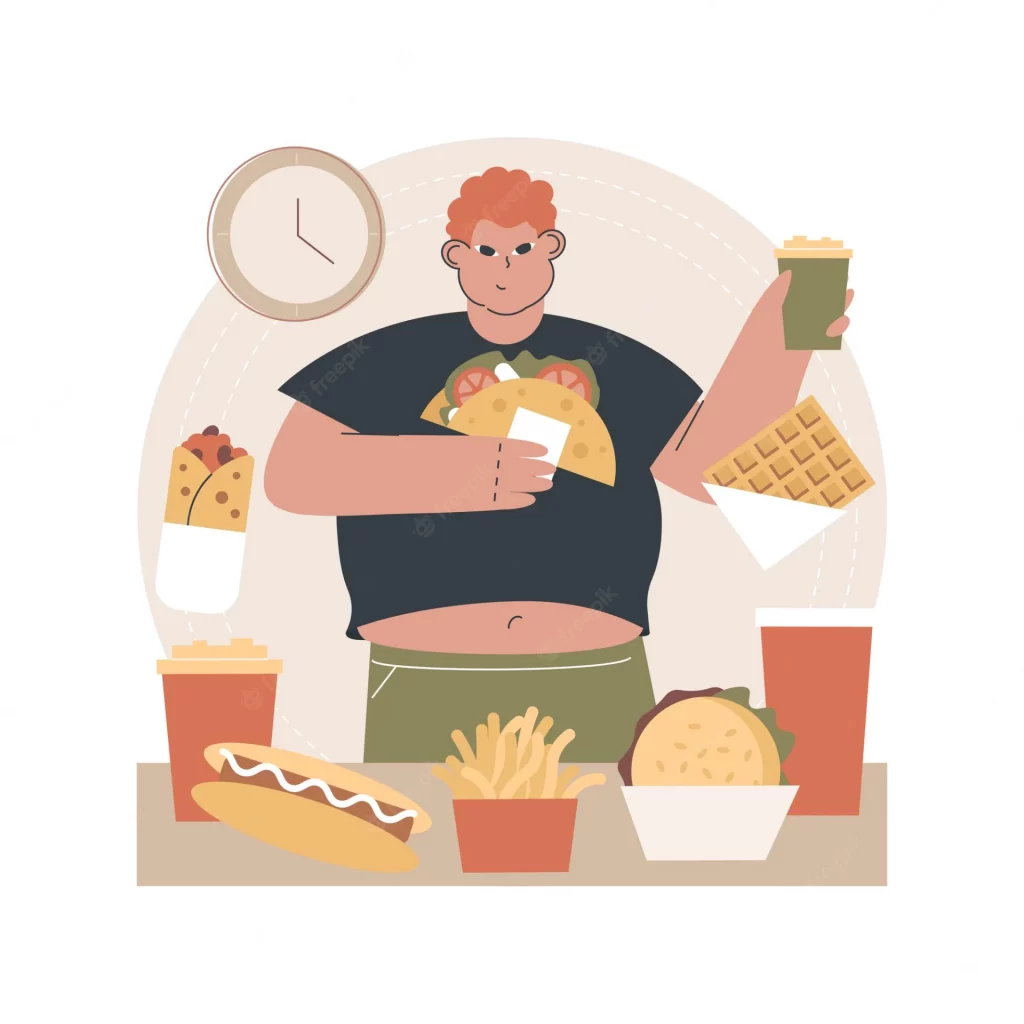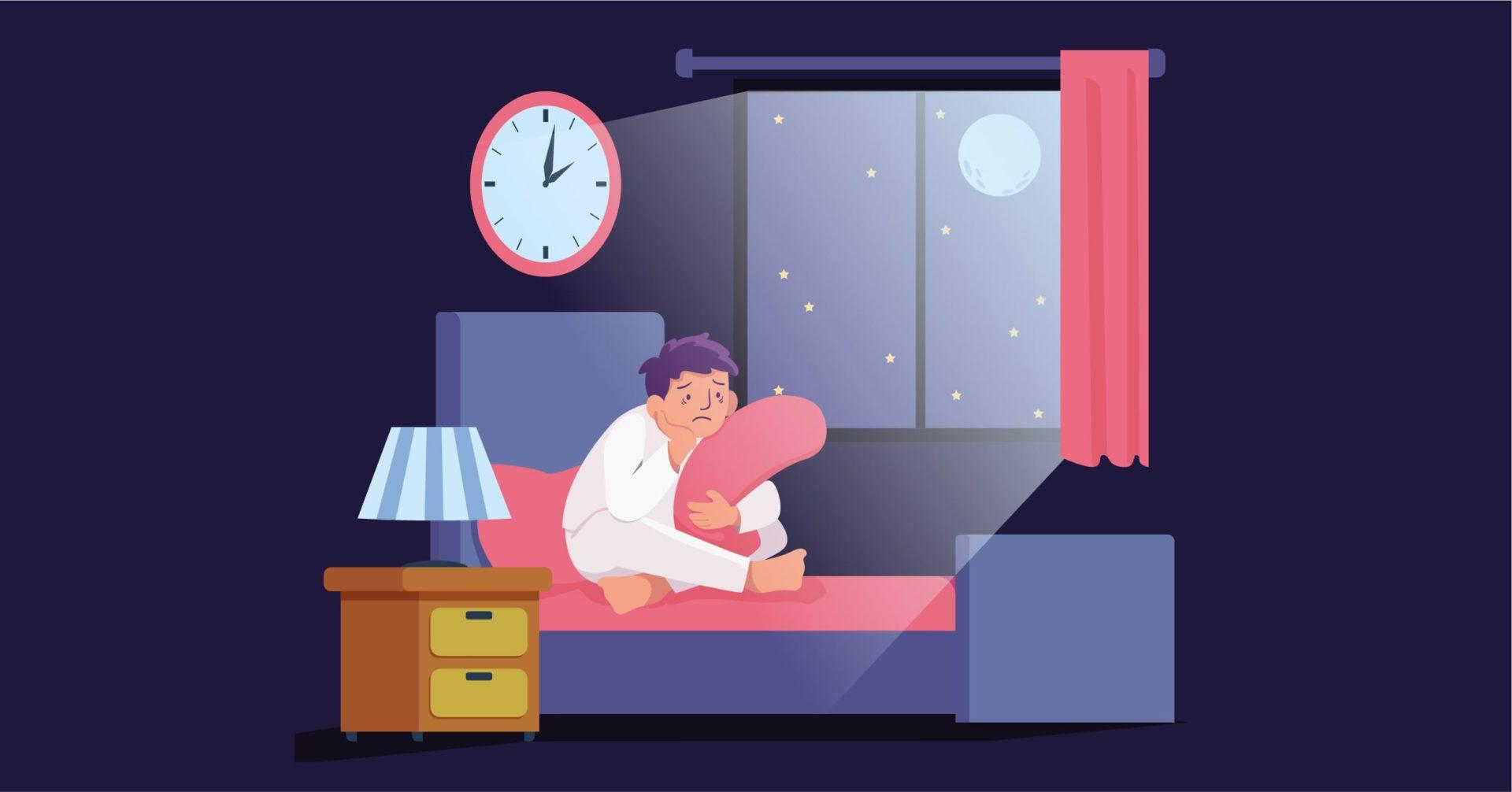Overview
Binge eating disorder is characterised by periods of excessive eating in a short duration of time. People with this disorder often feel out of control of their eating, and tend to overeat even if they feel uncomfortably full.
People with binge eating disorder tend to eat alone due to feelings of shame, torment, disgust and sadness after the episode. It’s best to note that a lot of people with binge eating disorder may be overweight or obese and often face stigma in relation to their appearance and weight.
Some people may also engage in restrictive eating in attempts to lose weight and control urges, but restriction only seems to make it worse. Note that it can happen to a normally weighted person too.
Common Binge Eating Disorder Symptoms
A person with may have the following binge eating disorder symptoms:
- tend to eat a lot within a short span of time.
- tend to lose control over their intake
- continue eating even if they feel uncomfortably full.
- eat even when not hungry.
- feel shame and guilt after eating.
- tend to eat alone.
Unlike Bulimia Nervosa, people suffering from binge eating disorder do not engage in restrictive behaviours such as starving, vomiting, taking laxatives, etc. after binge eating.
Most people with binge eating disorder may be at a risk of heart diseases, metabolic syndrome and type-2 diabetes. Women tend to have irregular periods.
Risk Factors
A study conducted by Devlin, Brody and Walsh(1994) found that around 20% of people on weight loss programmes binge eat and that number is higher (up to 50%) for those opting for bariatric surgery. This suggests that binge eating disorder is common among people who are overweight or obese.
An overwhelming majority of persons suffering from BED are females and there is pre dominance of BED among males who identify as gay and bisexual. Adolescent girls are also at higher risk of developing BED.
Studies have found cultural influences in the trends of this disorder. Women immigrating to the western countries show higher rates of eating disorders in general. Alongside these, emotional regulation issues, depression and body image issues are also linked to the risk of developing binge eating disorder.
Diagnosis
A clinical psychologist often diagnoses people with eating disorders. In order to be diagnosed with BED, DSM-5 lists the following criteria:
- Eating a lot of food within a short span of time (a 2-hour period), more than what people usually eat under normal circumstances.
- A sense of lack of control over eating during the episode.
- Binge eating episodes must be characterized by at least 3 of the following: eating until uncomfortably full, eating rapidly, eating large amounts of food without being hungry, eating alone or feeling embarrassed by how much is being eaten, feeling disgusted with oneself, guilty, depressed afterwards.
- Binge eating occurs at least once a week for 3 months.
- It is not associated with compensatory behaviour, like in the case of bulimia nervosa.
Psychologists are expected to specify the severity of the disordered behaviour and whether it occurs in partial or full remission.
Treatment
Recovery from binge eating disorder is not a question of will power or efforts in that direction.
Psychotherapy, rehabilitation and psychopharmacotherapy are the available options for the binge eating disorder treatment.
Medication:
Lisdexamfetamine is an FDA approved drug in the binge eating disorder treatment. Selective Serotonin Reuptake Inhibitors are often given to regulate moods which affect binging episodes.
Psychotherapy:
Cognitive Behavioral Therapy is seen to have more effective results as compared to Prozac or Prozac and CBT combined. Binge eating episodes almost went down by 60% in a 1-year follow up of the study.
CBT administered as blocks of self help treatment also helped in decreasing binge eating episodes. Behavioural weight loss treatment is shown to help in the management of binge eating disorder. However, more in depth studies are warranted.
Differential Diagnosis
1. Bulimia nervosa: Binge eating disorder and bulimia nervosa have the common symptom of persistent excessive eating in common but the habit of purging that follows in bulimia nervosa is absent in binge eating. Binge eaters do not show any signs of dietary restrictions apart from attempts of reducing food intake. The treatment and recovery rate for binge eating is higher than that of bulimia nervosa.
2. Obesity: Binge eating does involve cases of being overweight but it does not match the excessive weight gain that is common to obesity. Also, obese individuals have higher chances of psychiatric comorbidity and require long term treatments which are not necessary for binge eaters.
3. Bipolar and depressive disorders: Major depressive disorder and bipolar disorder do mention a criteria for increase in appetite and unusual weight gain but neither of them mention a loss of control regarding food. If criteria for both the disorders are met separately, they can be diagnosed as comorbid.
4. Borderline personality disorder: Impulsive behaviour being a feature of both the disorders, if criteria for both the disorders are met separately, they can be diagnosed as comorbid.
Comorbidity
Binge eating disorder is most commonly comorbid with bipolar disorder, depressive disorders, anxiety disorders and substance use disorders along with psychiatric comorbidity equal to bulimia nervosa, anorexia nervosa.
Specialist
A clinical psychologist, nutritionist, psychiatrist as well as a certified CBT practitioner work together in the treatment of BED.





